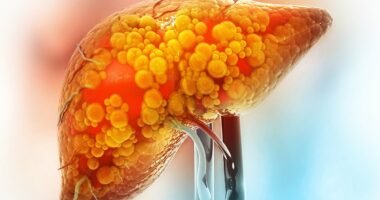Share this @internewscast.com

The study underscores the urgent need to address the unmet needs of individuals navigating the intersection of severe mental illness and metabolic syndrome.
For individuals grappling with severe mental illnesses like schizophrenia or bipolar disorder, conventional treatment with antipsychotic medications often poses a conundrum. While these drugs assist in regulating brain chemistry, they frequently trigger metabolic side effects such as insulin resistance and obesity, leading many patients to discontinue their medication. However, a recent pilot study led by Stanford Medicine researchers sheds light on a promising alternative: the ketogenic diet. This dietary intervention not only restores metabolic health in patients continuing their medications but also enhances their psychiatric conditions, as detailed in Psychiatry Research.
Unearthing The Connection
Dr. Shebani Sethi, associate professor of psychiatry and behavioral sciences at Stanford Medicine, spearheaded the study after observing intriguing results in a patient with treatment-resistant schizophrenia who experienced alleviation of auditory hallucinations on a ketogenic diet. Inspired by this observation and drawing from the success of ketogenic diets in treating epileptic seizures, Sethi ventured into exploring dietary interventions for psychiatric conditions, coining the term “metabolic psychiatry.”
The Pilot Trial
The four-month pilot trial enlisted 21 adult participants diagnosed with schizophrenia or bipolar disorder, consuming antipsychotic medications, and exhibiting metabolic abnormalities. Participants adhered to a ketogenic diet comprising approximately 10% carbohydrates, 30% protein, and 60% fat, focusing on whole, non-processed foods rich in protein and non-starchy vegetables. Weekly monitoring of blood ketone levels gauged dietary compliance.
Striking Results
Remarkable metabolic and psychiatric improvements emerged at the trial’s culmination. Participants witnessed a substantial reduction in body weight, waist circumference, blood pressure, triglyceride levels, and insulin resistance. Notably, none of the participants met the criteria for metabolic syndrome post-intervention. Psychiatric assessments revealed a notable 31% enhancement in the clinical global impressions scale, accompanied by enhanced sleep quality and life satisfaction.
Proposed Mechanisms
The researchers speculate that the ketogenic diet’s metabolic benefits extend to the brain, ameliorating metabolic deficits underlying psychiatric disorders. By furnishing ketones as an alternative energy source, the diet potentially counteracts brain energy dysfunction, addressing the root cause of mental illness.
Implications And Future Directions
The pilot study offers a promising glimpse into the therapeutic potential of dietary interventions in mental health management, urging further exploration through large-scale studies. The researcher’s pioneering work in metabolic psychiatry underscores the significance of tailored interventions for individuals grappling with concurrent mental illness and metabolic disturbances.
Conclusion
As researchers reflect on their patients’ plight, the study underscores the urgent need to address the unmet needs of individuals navigating the intersection of severe mental illness and metabolic syndrome. By pioneering innovative approaches like metabolic psychiatry, researchers endeavor to empower patients with holistic interventions that enhance both physical and mental well-being.












